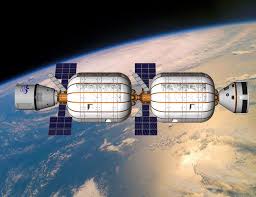
Breaking News
 Tuesday War Room LIVE: Trump Set to Shatter Deportation Record by End of First Year…
Tuesday War Room LIVE: Trump Set to Shatter Deportation Record by End of First Year…
 Parallel Polis Reborn: Freeing the Market through Decentralized Technologies
Parallel Polis Reborn: Freeing the Market through Decentralized Technologies
 Amazon goes nuclear with new modular reactor plant
Amazon goes nuclear with new modular reactor plant
 The alarming reality EXPOSED by the global internet meltdown... and why Amazon's crash...
The alarming reality EXPOSED by the global internet meltdown... and why Amazon's crash...
Top Tech News
 3D Printed Aluminum Alloy Sets Strength Record on Path to Lighter Aircraft Systems
3D Printed Aluminum Alloy Sets Strength Record on Path to Lighter Aircraft Systems
 Big Brother just got an upgrade.
Big Brother just got an upgrade.
SEMI-NEWS/SEMI-SATIRE: October 12, 2025 Edition
 Stem Cell Breakthrough for People with Parkinson's
Stem Cell Breakthrough for People with Parkinson's
 Linux Will Work For You. Time to Dump Windows 10. And Don't Bother with Windows 11
Linux Will Work For You. Time to Dump Windows 10. And Don't Bother with Windows 11
 XAI Using $18 Billion to Get 300,000 More Nvidia B200 Chips
XAI Using $18 Billion to Get 300,000 More Nvidia B200 Chips
 Immortal Monkeys? Not Quite, But Scientists Just Reversed Aging With 'Super' Stem Cells
Immortal Monkeys? Not Quite, But Scientists Just Reversed Aging With 'Super' Stem Cells
 ICE To Buy Tool That Tracks Locations Of Hundreds Of Millions Of Phones Every Day
ICE To Buy Tool That Tracks Locations Of Hundreds Of Millions Of Phones Every Day
 Yixiang 16kWh Battery For $1,920!? New Design!
Yixiang 16kWh Battery For $1,920!? New Design!
 Find a COMPATIBLE Linux Computer for $200+: Roadmap to Linux. Part 1
Find a COMPATIBLE Linux Computer for $200+: Roadmap to Linux. Part 1
Bigelow Aerospace Launches New Company to Operate Private Space Stations

A company that builds big, inflatable space habitats has launched a new venture that will market and operate these structures in Earth orbit and beyond.
Today (Feb. 20), entrepreneur Robert Bigelow announced the creation of Bigelow Space Operations (BSO), which will manage the private space stations being built by his Nevada-based manufacturing company, Bigelow Aerospace.
BSO will also conduct in-depth market research, to gauge the demand for these space stations and identify the most promising customer bases. [Bigelow Aerospace's Inflatable Space Station Idea (Photos)]
"We intend to spend millions of dollars this year in drilling down, hopefully, to a conclusion one way or the other as to what the global market is going to look like," Bigelow said in a teleconference with reporters today. "We expect to finish that investigation by the end of this year."
BSO was officially established last year, but it started hiring only last month, Bigelow said. The company has already filled a number of key posts, including chief operating officer and general counsel, and intends to hire three dozen to four dozen people this year. Eventually, 400 to 500 people will probably work for BSO, the entrepreneur said.
Bigelow's space-station plans are based on soft-bodied modules that launch in a compressed configuration but expand greatly once they reach space. Such inflatables offer much more habitable volume per unit launch mass, and better radiation shielding, compared with traditional aluminum modules, company representatives have stressed.
Read More...



